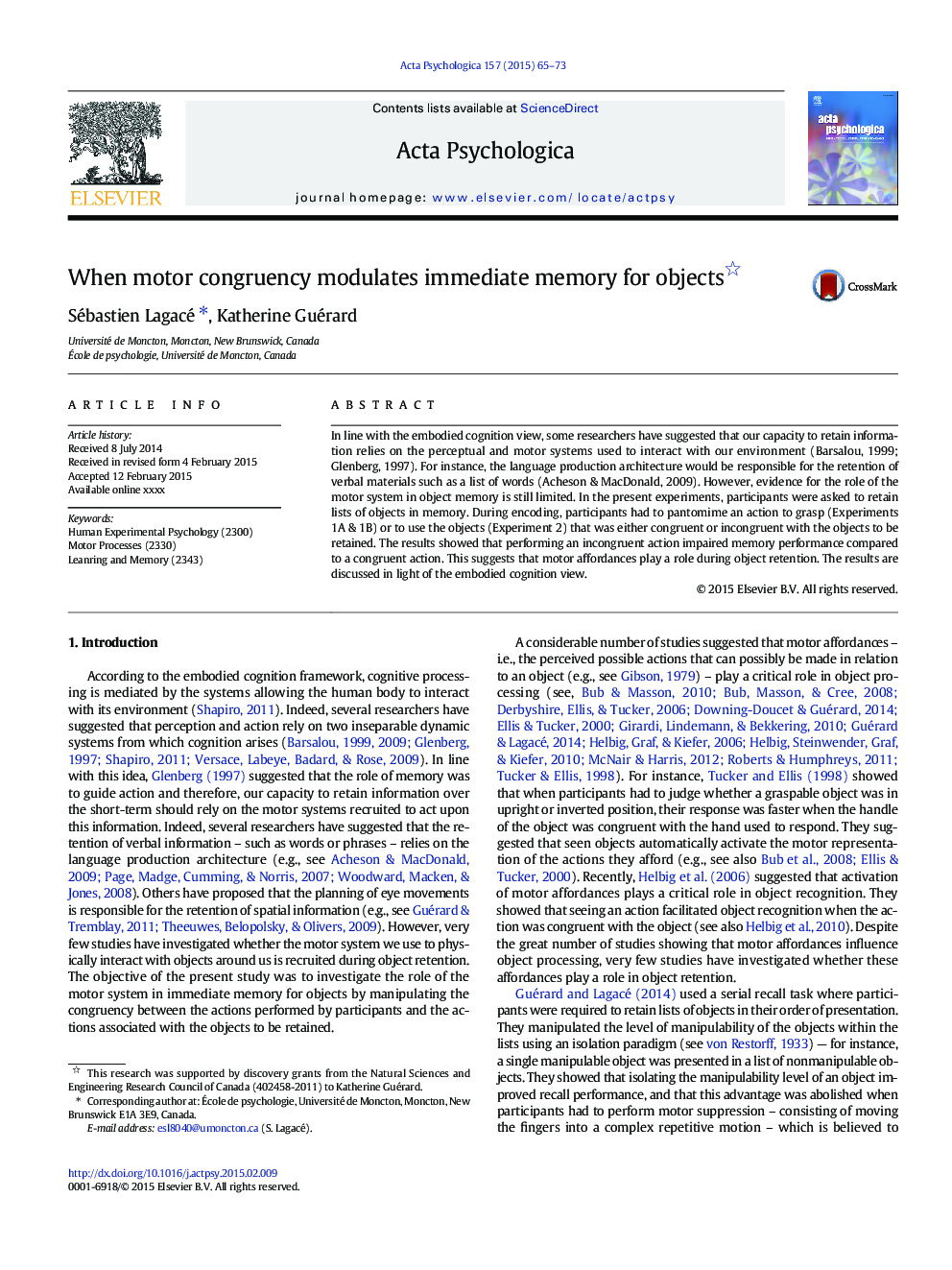| Article ID | Journal | Published Year | Pages | File Type |
|---|---|---|---|---|
| 7277332 | Acta Psychologica | 2015 | 9 Pages |
Abstract
In line with the embodied cognition view, some researchers have suggested that our capacity to retain information relies on the perceptual and motor systems used to interact with our environment (Barsalou, 1999; Glenberg, 1997). For instance, the language production architecture would be responsible for the retention of verbal materials such as a list of words (Acheson & MacDonald, 2009). However, evidence for the role of the motor system in object memory is still limited. In the present experiments, participants were asked to retain lists of objects in memory. During encoding, participants had to pantomime an action to grasp (Experiments 1A & 1B) or to use the objects (Experiment 2) that was either congruent or incongruent with the objects to be retained. The results showed that performing an incongruent action impaired memory performance compared to a congruent action. This suggests that motor affordances play a role during object retention. The results are discussed in light of the embodied cognition view.
Related Topics
Life Sciences
Neuroscience
Cognitive Neuroscience
Authors
Sébastien Lagacé, Katherine Guérard,
